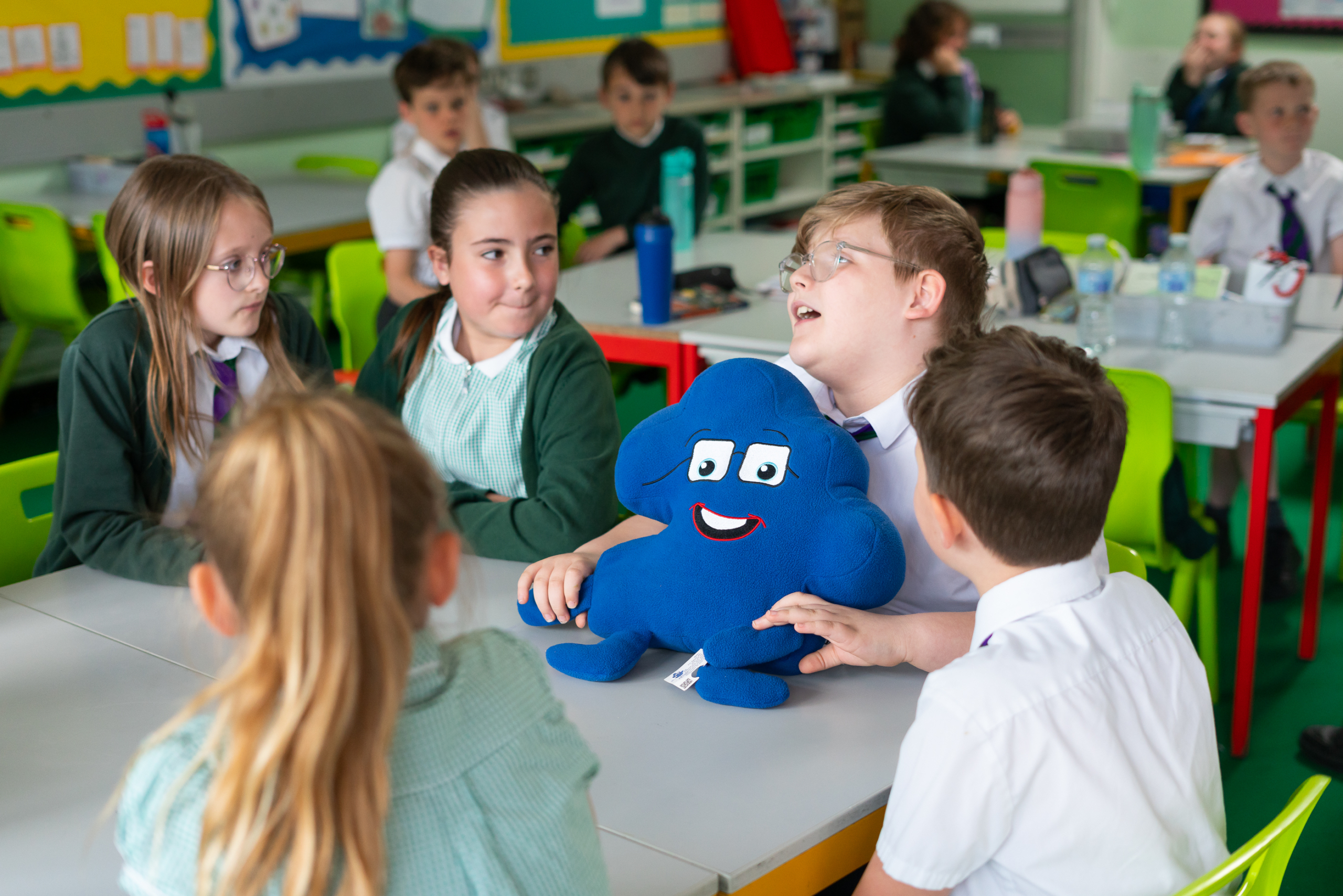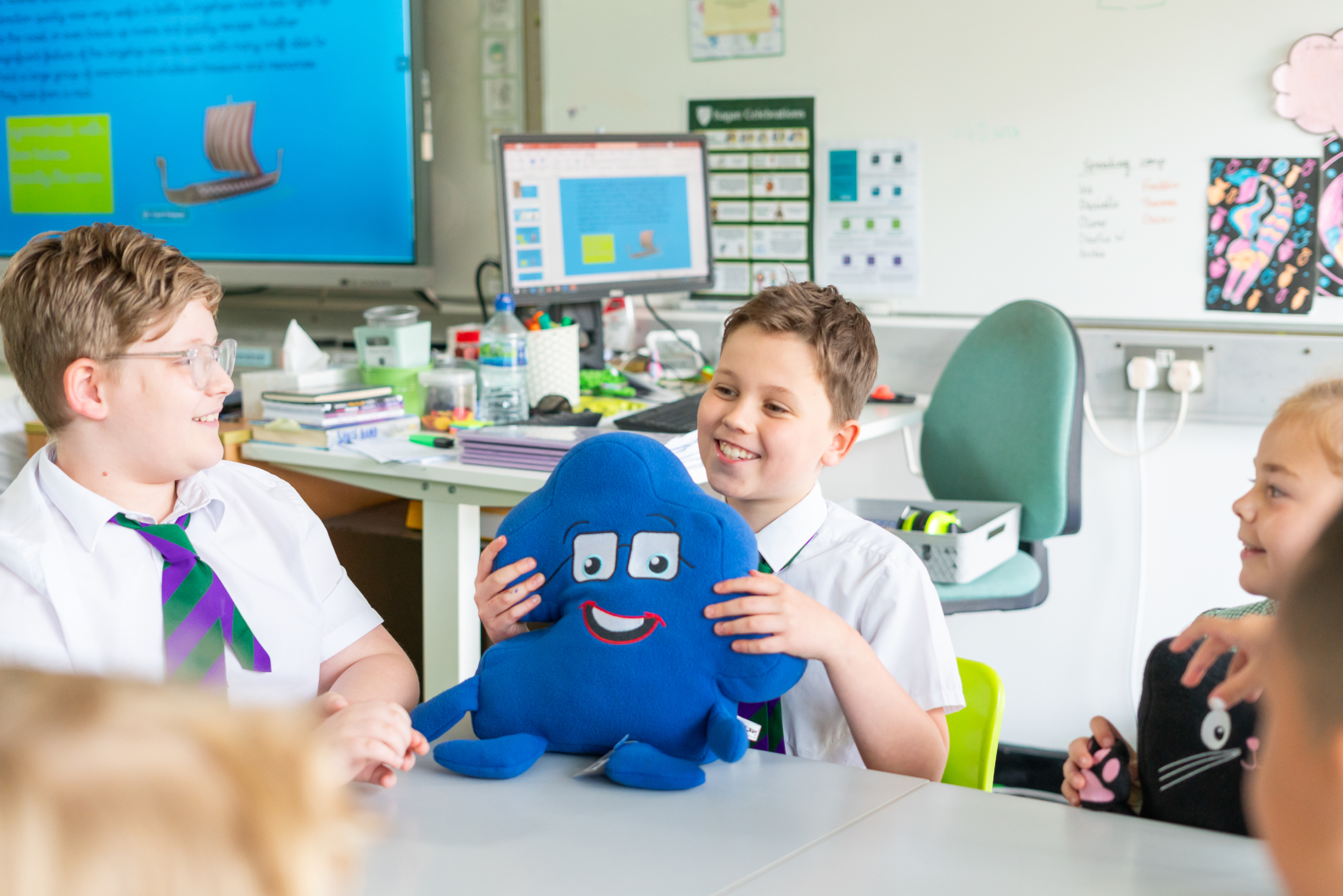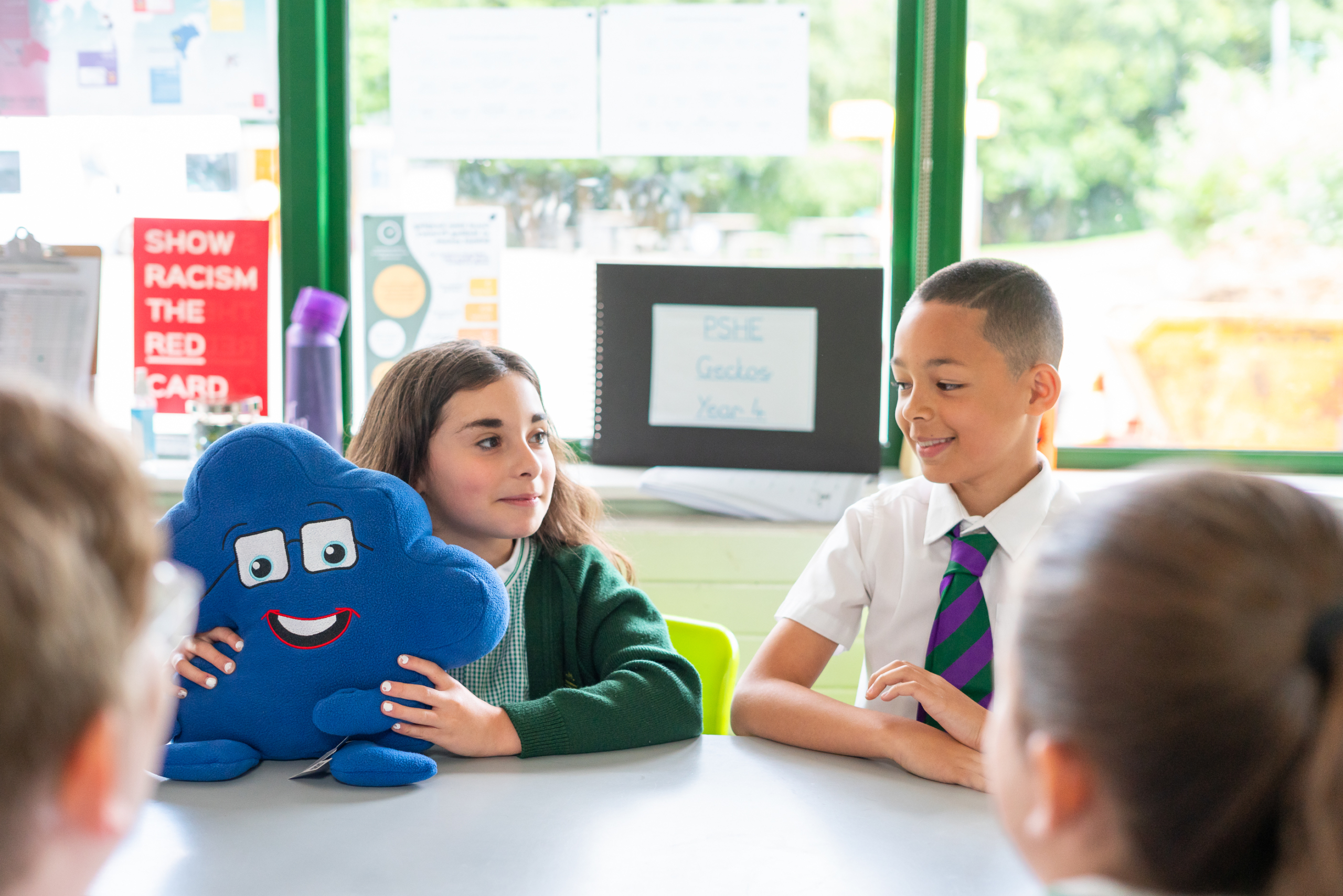PSHE and RSE Subject Leader: Mrs E Nott
Personal, Social, Health and Economic (PSHE) is a necessary part of all pupils’ education to help them to stay healthy, safe, and prepared for life. Relationship and Sex Education (RSE) enables young people to learn about healthy relationships, their mental well-being and their understanding of their bodies.
Intent
At Halling Primary School we believe that Personal, Social, Health and Economic Education (PSHE) enables our children to become healthy, safe, independent and responsible members of society. It aims to help them understand how they are developing personally and socially and tackles many of the moral, social and cultural issues that are part of growing up. We are dedicated to ensuring that Halling is a happy, stimulating and caring place to be; we expect high standards of behaviour and good manners throughout the school. Behaviour and attitudes to learning are underpinned by our Core Values that are taught through PSHE lessons and weekly assemblies, making it integral to the success of the whole school.
At Halling Primary School, good relationships are fundamental to our ethos and our success in being a happy, caring and safe school. Relationships and Sex Education (RSE) is lifelong learning about relationships, emotions, looking after ourselves, different families, sex, sexuality and sexual health. We aim for the children in our school to acquire the appropriate knowledge, develop their skills and form positive beliefs, values and attitudes. RSE has a key part to play in the personal, social, moral and spiritual development of young people.


Implementation
We encourage our children to take part in a range of practical roles and activities that promote active citizenship: Head Pupils, Communications Team, Zone Leaders, House Captains, whole school fundraising, reading buddies and engagement in school and local events. All children at Halling have a ‘voice’ and every child is a member of the Smart School Council. Children have opportunities to meet and work with members of the community, such as health workers, firefighters, police officers, librarians, sports coaches, secondary school pupils, artists, authors, and representatives from the local church and Medway Council. We participate in and promote National events such as Diversity Week, Jeans for Genes Day, Mental Health Awareness Day, National Poetry Day, World Book Day, Online Safety Day, Anti-Bullying Week, Children in Need, Comic Relief and Road Safety Week. PSHE is taught as both explicit lessons, using the Jigsaw scheme of work but it is also embedded in other areas of the curriculum and day-to-day life of the school such as assemblies. Pastoral support is also given to those children who may need Talk Time or Play Therapy with our Pastoral Lead.
RSE is taught as explicit lessons through the PSHE and science curriculums but is also embedded in other areas of the curriculum and the day-to-day life of the school. In PSHE, RSE is specifically covered in the units ‘Relationships’ and ‘Changing Me’ and in science ‘Animals Including Humans’ and ‘Living Things and Their Habitats’ also cover the statutory requirements; other elements are also covered in the Religious Education curriculum. Children are taught by familiar adults who they have a good rapport with, in order to facilitate constructive and supportive discussions around sensitive topics in a safe and secure environment. Staff receive in-house support to help them in responding to the needs of the individual child and support children with any questions or concerns they may have. If staff feel uncomfortable or unsure when delivering the RSE curriculum or dealing with individual pupil needs, they know where to seek advice and support. The RSE curriculum has been mapped out clearly in the progression grids for PSHE and science which ensure coverage of all of the statutory elements by the end of the primary phase; these are delivered at the appropriate stage for our children. Our high expectations of behaviour, interpersonal relationships, respect and tolerance of others reflect the British Values upheld in both our community and the wider world. Through our progressive curriculum, children develop key skills and are prepared for the wider world beyond primary school, a world in which they can keep themselves safe and healthy and thrive with the support of the positive relationships they forge with those around them.
Impact
As a result, we have children who are able to form happy and positive relationships. They can show empathy and compassion to others. They have the confidence to make the most of their abilities but also value and respect diversity. The children in the school show respect for others’ rights to their own values and beliefs. They can use appropriate strategies for managing influence and are encouraged to take positive risks. They are developing as aspirational individuals who are confident to set their own goals for success.
The impact of our curriculum offer will be that the standards of attainment across the school will meet or exceed those which are expected of our children nationally. We continuously assess the implementation and impact of our RSE curriculum in order to achieve the highest outcomes possible across all year groups and ensure we provide the support that is necessary for all children to have a good understanding of the complexities of relationships and sexual matters and a secure knowledge and skills base to navigate their way through these, now and in the future. Through our RSE curriculum, we believe we can enhance children’s education and help them to become confident individuals who have positive body awareness, in-depth knowledge of how to keep themselves safe and healthy and who will, through respect, tolerance and understanding, forge and maintain positive relationships with a diverse range of family and friendship groups.

PSHE and RSE in Each Stage
Children learn about how they have similarities and differences from their friends. They learn about responsibility and children’s rights. Friendship and kindness are taught, promoted and celebrated, but also how to deal with unkindness. Goals and dreams are discussed, and children learn about the resilience and perseverance needed to reach these goals, and feelings around these. Healthy bodies and minds are a key part of PSHE learning in EYFS, and children learn ways to keep healthy and safe, including healthy eating, the benefits of sleep and stranger danger. Children learn about key relationships and families, and the roles people can play in a family. They are also introduced to Calm Me time, and ways to use this when feeling angry or upset. Children also look at changes in their bodies over time – from when they were a baby until now and then in the future. They name and learn about functions of main body parts. They learn about change and memory, and the role that memories can have in manging change.
Children learn about what makes us unique and special, differences and similarities between girls and boys and gender stereotypes. They talk about bullying and what this means, as well as how this can make us feel and ways to deal with this. They learn that it is okay to disagree with or have different likes to our friends. Children discuss their goals, the difficulties they may face reaching them and the perseverance needed to overcome challenge. Healthy choices, both for bodies and minds, are learned about, and children begin to understand why certain foods are good for us. They consider what makes them feel relaxed or stressed. Children in Key Stage 1 consider wider relationships, such as those within the school community, and the importance of co-operation, appreciation and trust. There is a focus on falling out and mending friendships to provide children with the tools needed to deal with disagreements. Children also learn about people who can help them if they feel worried or scared. Children are taught the correct names for body parts in Key Stage 1. They are taught that nobody has the right to hurt private parts of their body, and also that change is a natural part of growing up. Children also learn about their growing responsibilities and independence as they are getting older.
Children learn about recognising their self-worth and achievements. They set goals, identifying barriers, fears and challenges they may face on their journey to their goal. They learn about their behaviour, responsibilities and rights, and how their choices result in consequences, positive and negative. Children consider democratic approaches to decision-making, and they collaborate to establish a Jigsaw Charter related to choices and actions. Celebration of difference is a key part of pupils’ learning, and a recognition of and respect for the diversity of our community, locally, nationally and globally. Racism, judging by appearance, different types of families and social, economic, cultural and spiritual differences are discussed. Children learn about the impact bullying can have on others and themselves. They also learn about disabilities and educational needs. Global issues are discussed, and ways that people can be courageous advocates for causes or actions that create change. Children reflect on personal success and the kinds of actions they may take to achieve their goals and dreams. Children learn about keeping their bodies healthy, including the risks and effects of smoking, different types of drugs and their effects and what is in our food and how it affects our bodies. They also learn about looking after their mental health, considering the impact of the media, eating disorders, how to deal with peer pressure, body image and ways to deal with stress. They investigate online safety, and topics such as grief and loss, jealousy and communicating with friends and family in a positive and safe way. Puberty how our bodies change during this time is introduced and built upon across Key Stage 2. They learn about internal and external changes to the body, and how a baby is formed. They also discuss self-esteem and self-image during this time to support the changes they may experience. Children learn about the importance of mutual respect in relationships and not being pressured into doing something they do not want to do. Children also learn about transition and dealing with change.
PSHE and RSE Progression
SEND Information
We ensure that SEND and disadvantaged children are given the necessary support in class to fully access the PSHE/RSE Curriculum and equal opportunities are given for all to be confident in approaching any problem within the world around them.
PSHE and RSE Extra Resources
Further PSHE and RSE Help

